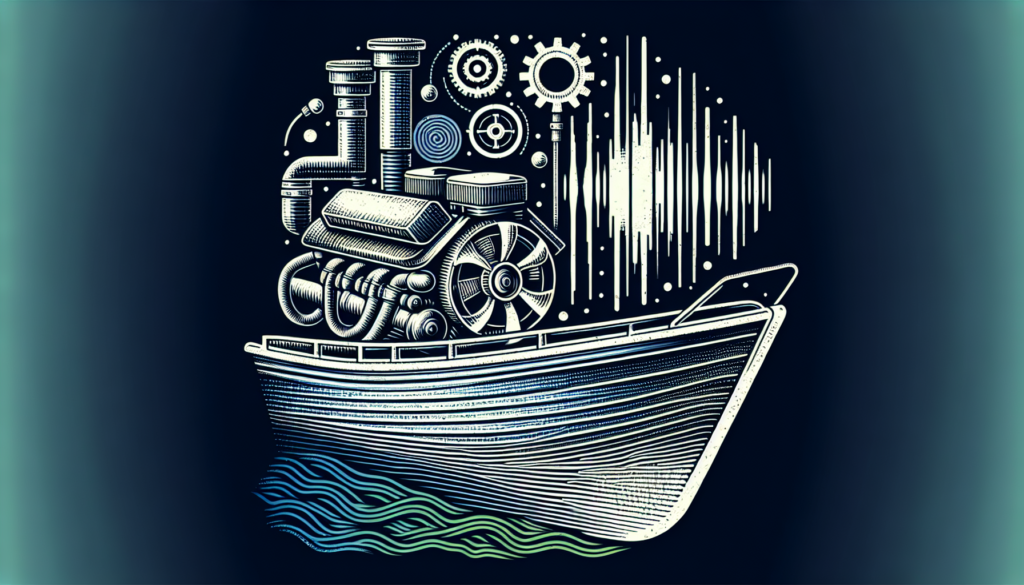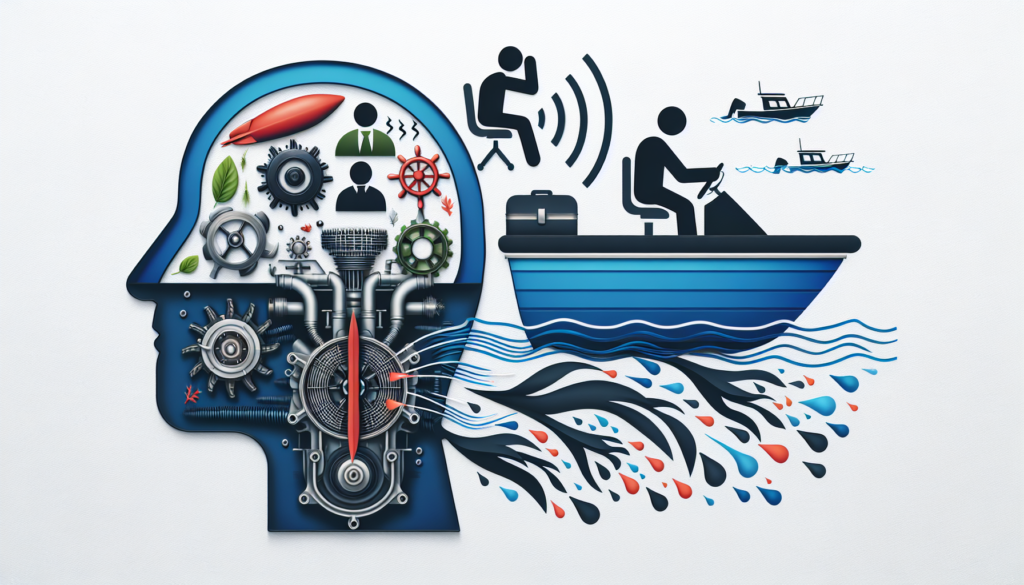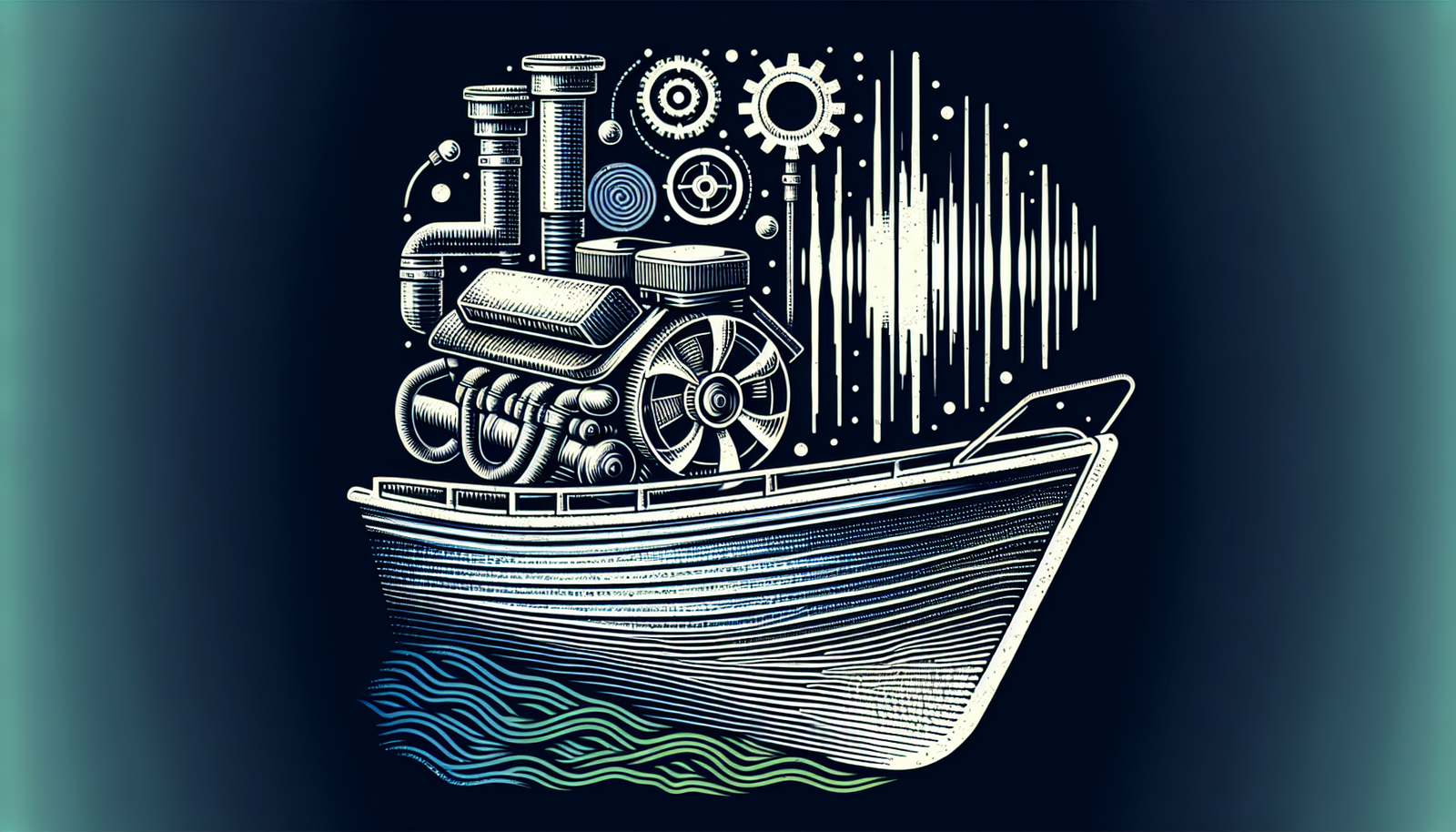Imagine spending a serene day out on the sea, your boat slicing through the gentle waves, the realization rushes in – this could be harming your health. It’s not something you often consider, isn’t it? But the incessant hum of your boat’s engine could potentially be taking a toll on your health. “The Impact of Boat Engine Noise On Human Health” shines a light on this under-researched issue. With an array of scientific studies, the author explores the harmful effects of consistent exposure to boat engine noise. From potentially causing hearing loss to increasing stress levels, this article will open your eyes to an oft-ignored aspect of maritime health and safety.

Understanding Boat Noise
Definition of boat noise
Boat noise refers to the sounds that boats make when operating. This noise tends to be distinctive due to the unique amalgamation of sounds from several sources. While some people may find the hum of boat engines calming or unobtrusive, for others, and in certain situations, boat noise can be disruptive, annoying, and potentially harmful.
Main sources of boat noise
There are several sources of boat noise, the most significant of which is the engine. Boat engines, particularly those of larger vessels, emit strong vibrations and sounds as they function. Other sources include onboard equipment such as radios, navigational systems, and even chatter from passengers or crew. Additionally, the water-surface motion disturbances caused by a boat’s movement can also generate noise.
Different types of boat engine sounds
The noise produced by boat engines varies greatly based on the type of engine, it’s size, and the boat’s overall design. Some common types of boat engine sounds include the whir of an electric engine, the purr of a diesel engine, and the rumble of a gasoline engine. Each type of engine noise has its unique characteristics and pitch, with some being more disruptive or harmful than others.
The Science Behind Sound and Noise
Understanding sound waves
Sound waves are created by vibrations in the air, which cause pressure changes that our ears detect and translate into sounds. There are three main aspects of sound waves: amplitude (how loud the sound is), frequency (how high or low the sound is), and speed (how fast the sound waves travel).
Difference between sound and noise
The primary difference between sound and noise is a matter of perception. While sound is a sensory experience that the brain interprets from the vibrations the ears detect, noise is often defined as undesired or unpleasant sound. Therefore, while all noise is a form of sound, not all sound is noise.
How noise affects the human pattern of hearing
Noise, especially when it’s loud or sustained, can damage the hair cells in the inner ear, which are crucial for hearing. This can result in temporary or even permanent hearing loss. Even at lower volumes, persistent noise can still cause a range of physiological and psychological issues due to the stress it places on the body.

Boat Engine Noise and Hearing Loss
How boat engine noise contributes to hearing loss
Boat engine noise can be particularly damaging due to its consistent nature and varying intensity levels. High-intensity engine noise, especially when prolonged, can impair the function of the inner ear and lead to noise-induced hearing loss. This type of hearing loss is often gradual and is therefore usually only noticed when significant damage has already occurred.
Types of hearing loss caused by boat engine noise
The most common type of hearing loss from boat engine noise is noise-induced hearing loss, which can be temporary or permanent. Temporary hearing loss tends to occur after short-term exposure to loud noise and usually resolves after some time away from the noise. Permanent hearing loss, on the other hand, commonly stems from prolonged exposure to loud noise and is typically irreversible.
Prevention and coping methods for noise-induced hearing loss
Preventing noise-induced hearing loss primarily involves reducing exposure to loud noises. For boaters, this may mean using quieter engines, soundproofing the boat’s interior, or wearing noise-canceling headphones. Regular hearing checks can also help detect any early signs of hearing loss.
The Stress Response to Boat Engine Noise
The body’s stress response to noise
Exposure to unwanted noise can trigger the body’s stress response, a complex reaction involving the release of stress hormones like cortisol. This can result in symptoms like increased heart rate, rapid breathing, and heightened alertness.
Chronic stress and its health implications
When the stress response is repeatedly triggered, it can lead to chronic stress, which is linked to a myriad of health issues like hypertension, heart disease, diabetes, and mental disorders. The persistent nature of boat engine noise, particularly for people living or working near ports, can therefore have significant long-term health impacts.
Boat noise and the risk of cardiovascular disease
There’s growing evidence to suggest that long-term exposure to boat engine noise can increase the risk of cardiovascular disease. The stress response triggered by noise can elevate blood pressure and stimulate the release of fatty acids into the bloodstream, both of which are risk factors for cardiovascular disease.

Sleep Quality and Boat Engine Noise
How noise interferes with sleep
Boat engine noise, like other forms of noise pollution, can significantly disturb sleep. Even if it doesn’t completely wake you up, it can interrupt your sleep cycle and reduce sleep quality, making you feel less rested in the morning.
Health consequences of sleep deprivation
Consistently poor sleep due to noise disturbance can lead to chronic sleep deprivation, which has been linked to various health conditions like obesity, heart disease, diabetes, and mental health disorders. It can also impair cognitive functioning and decrease productivity.
Strategies for reducing noise for better sleep
Using noise-canceling headphones, earplugs, or white noise machines can help block out boat engine noise. Soundproofing your living space or sleeping in a room that’s furthest from the noise can also help. Lastly, proper sleep hygiene, like maintaining consistent sleep schedules and creating a restful sleep environment, can also improve sleep quality.
Psychological Effects of Boat Engine Noise
Noise as a stressor affecting mental health
Consistent exposure to boat engine noise, apart from being a nuisance, can also act as a stressor and negatively affect mental health. The constant noise can increase anxiety levels, cause irritability and mood disruptions, and even contribute to feelings of helplessness or despair.
Boat engine noise and cognitive function
Chronic noise exposure can potentially harm cognitive functions like memory, attention, and problem-solving. This may be particularly relevant for children living near busy ports, as their developing brains may be more susceptible to the impacts of noise.
Mental health disorders linked to noise exposure
Researchers have suggested a link between persistent noise exposure and an increased risk of mental health disorders, such as depression, anxiety disorders, and sleep disorders. The constant noise can create a stressful environment that may exacerbate or contribute to the development of these conditions.

Occupational Health Risks and Boat Engine Noise
Boat engine noise in the work environment
Those working in the boating industry, such as sailors, marine engineers, or dock workers, are often exposed to high levels of boat engine noise. This constant exposure places them at a higher risk of noise-induced hearing loss and other health complications related to noise exposure.
The prevalence of hearing loss among mariners
Studies have reported a higher prevalence of hearing loss among mariners compared to the general population. This comes as no surprise since these workers are exposed to excessively loud noise on a daily basis, without always having adequate protection.
Occupational health and safety standards for noise
To protect workers against noise-induced injuries, there are occupational health and safety standards in place that stipulate maximum allowable noise levels in the workplace. Employers are required to provide protective gear like earplugs or earmuffs, conduct regular noise assessments, and ensure workers are aware of the risks associated with noise exposure.
Regulatory Measures for Boat Noise
Global standards and regulations for boat noise
Globally, there are standards and regulations intended to control and mitigate boat noise. These regulations specify maximum acceptable noise levels for different types of boats and require noise reduction measures for boats exceeding these standards.
Progress and challenges in boat noise regulation
While progress has been made in establishing boat noise regulations, there remain significant challenges in enforcing them. Compliance is often difficult to monitor, and there is a need for better technology to measure and mitigate boat noise.
Enforcing noise regulations on water bodies
Ensuring compliance with boat noise regulations requires regular monitoring and enforcement initiatives by relevant authorities. However, the unique challenges of measuring noise levels on the open water and the global nature of the shipping industry make regulation enforcement difficult.
Advancements in Reducing Boat Engine Noise
The use of quiet engines and noise reduction technologies
Recent advancements in technology offer promising solutions for reducing boat noise. These include the development of quieter engines and the use of noise reduction technologies, such as sound-absorbing materials and anti-vibration mounts.
Innovations in boat design for quieter operation
Modern boat design can also contribute to reducing engine noise. For example, boats can be designed with better hull insulation or engines placed in locations that minimize the transmission of noise.
The role of alternative energy sources in reducing boat engine noise
Alternative energy sources such as wind, solar, and electric propulsion systems can significantly cut boat engine noise. As the marine industry continues to seek cleaner, more sustainable energy solutions, the issue of boat noise will likely become less prevalent.
Public Awareness and Health Education on Boat Engine Noise
Current levels of public awareness
Despite the potential health effects, there’s a lack of public awareness about the impact of boat engine noise. Many individuals, especially those living or working near water bodies, may not even realize that the noise they’re exposed to could be harmful.
Health education initiatives related to noise pollution
Health education initiatives can play a significant role in raising awareness about boat engine noise and its potential health impacts. These initiatives can provide information on noise protection measures, the importance of regular hearing checks, and the need to lobby for better regulation enforcement.
The role of the media in raising awareness
Media can also do their part in raising awareness about boat engine noise. This could take the form of news reports, documentaries, or social media campaigns highlighting the issue and educating the public on the potential health risks and what they can do to protect themselves and their community.

